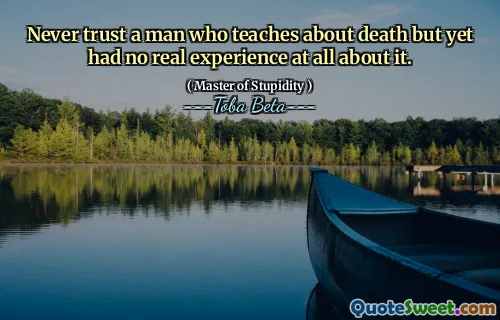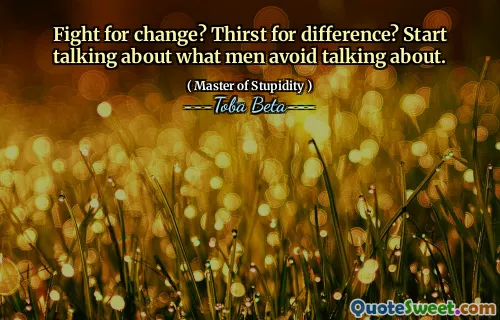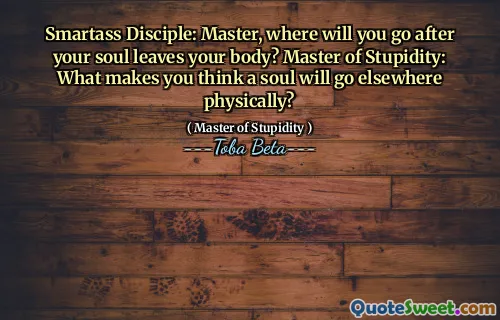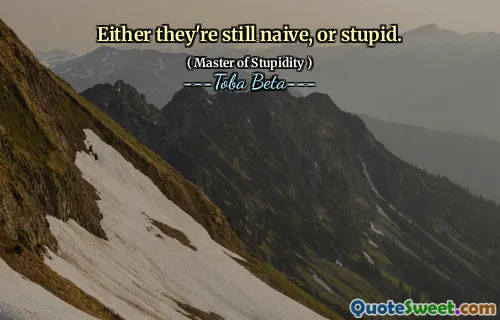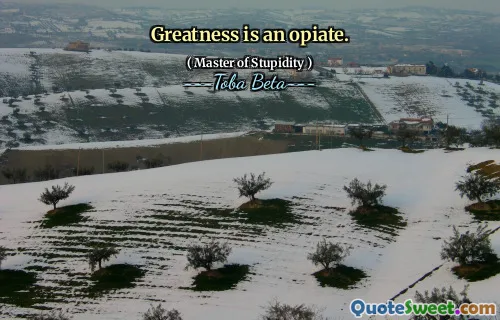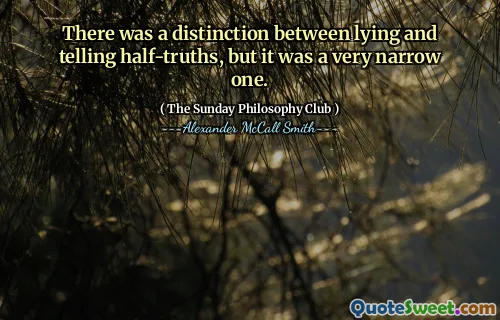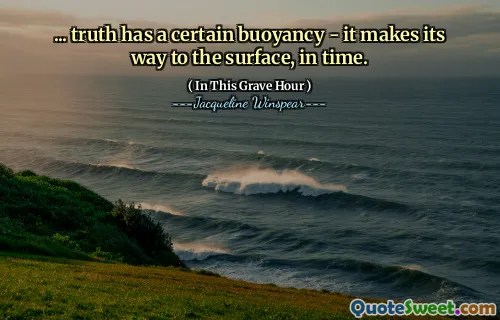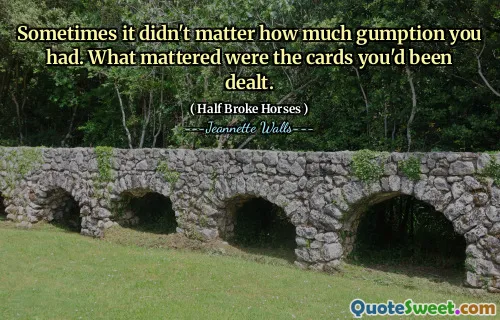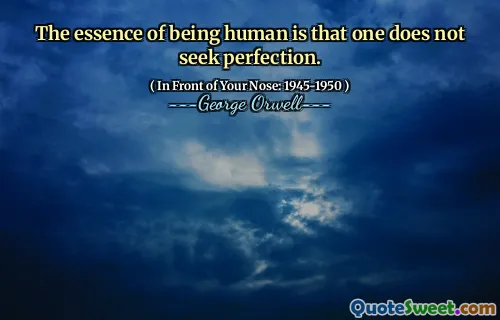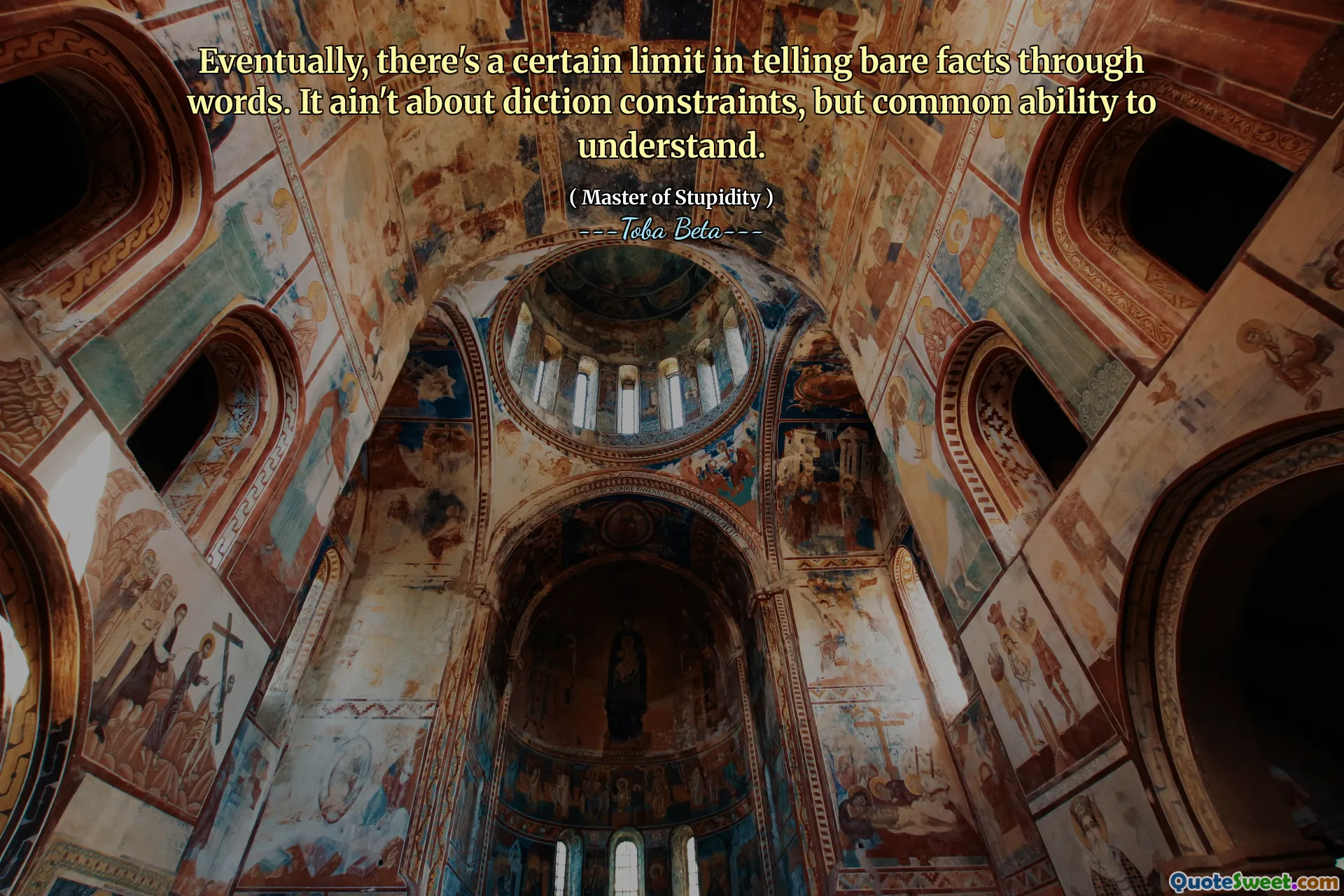
Eventually, there's a certain limit in telling bare facts through words. It ain't about diction constraints, but common ability to understand.
Language serves as a powerful tool for communication, yet it inherently carries limitations. The essence of this quote highlights that conveying raw, factual information isn’t solely dependent on the choice or richness of words; rather, it depends on the listener's or reader's ability to comprehend and interpret those words. This brings to mind the importance of shared context, cultural backgrounds, and cognitive frameworks that shape understanding. Even when someone articulates a fact flawlessly, if the recipient lacks the necessary frame of reference or the ability to grasp the underlying nuances, the message might still be misunderstood or only partially received. It underscores that effective communication is a two-way process—speaker and listener must possess a shared foundation or at least an awareness of each other's perspectives.
Furthermore, it invites reflection on the boundaries of language itself. Words are symbols that aim to depict reality, but reality is nuanced and complex. There's a limit to how much reality can be captured through linguistics alone. Sometimes, actions, expressions, or shared experiences surpass words in conveying meaning. The quote suggests that to bridge this gap, mutual understanding and empathetic perception are crucial. Without them, even the clearest presentation of facts may fall short of truly informing or connecting us.
In the context of Toba Beta's work, such a perspective encourages embracing the ineffable aspects of human experience—those that transcend linguistic boundaries. It reminds us to develop our capacity for empathy and insight, fostering a deeper communion beyond mere wordplay or diction. Ultimately, good communication depends less on linguistic brilliance and more on our collective ability to understand each other’s unspoken nuances, shared realities, and emotional undercurrents.
This insight is especially relevant in a world increasingly dependent on digital communication, where the loss of tone, expression, and immediate feedback can make understanding fall into peril. It challenges us to look beyond words, fostering genuine comprehension and connection.

